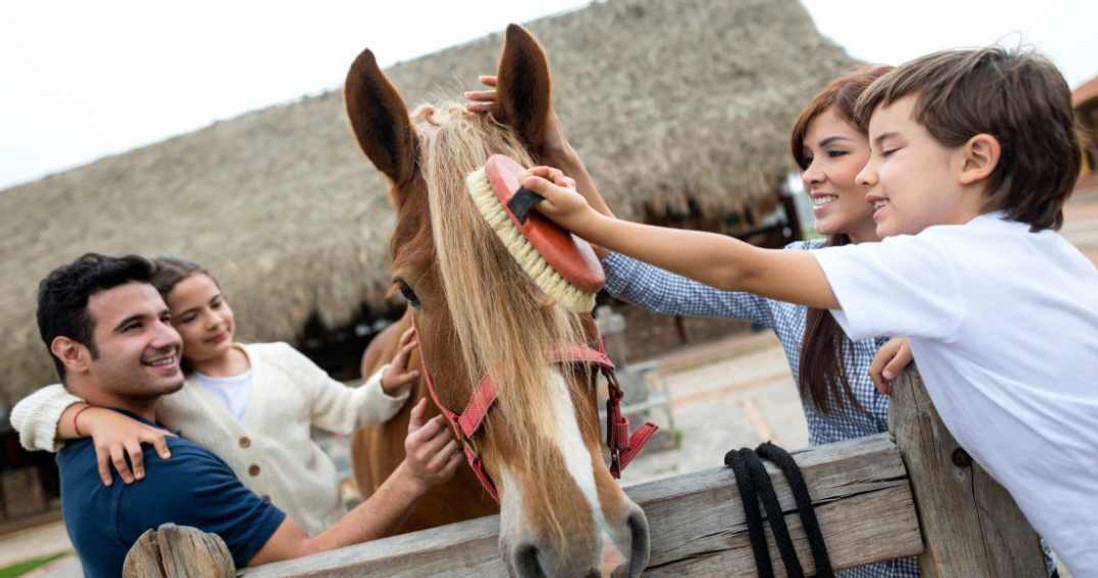
How Much Does a Horse Cost? A Guide to Buying a Horse
Posted by Millbrook Tack on 18th Jul 2023
Explore the Cost of Buying a Horse: A Comprehensive Guide
Are you considering buying a horse? Whether you're a seasoned horse rider or just starting out, it's crucial to think about the expenses involved in owning and looking after a horse. In this article, we will discuss the factors that affect horse prices and provide budgeting tips for horse owners.
The Initial Purchase Price of a Horse: How Much Does It Cost?
The first and most obvious expense when buying a horse is the initial purchase price. The cost of a horse can vary significantly depending on several factors, including breed, age, training, conformation, and pedigree. Horses can vary greatly in price, with untrained or older horses costing a few hundred dollars and well-trained, pedigreed, or competitive horses costing several thousand or even hundreds of thousands of dollars.
Horse Breed and Purpose: Factors Influencing Horse Prices
Horse breeds influence the value of a horse based on its characteristics, abilities, and historical background. Some breeds, like Thoroughbreds, Arabians, and Warmbloods, have higher prices due to their versatility, performance potential, or certain characteristics. The horse's intended purpose, like trail riding, dressage, jumping, or racing, can also affect the price. Horses bred for specific disciplines or with impressive show records often have a higher price tag.
Here are some popular horse breeds and their associated traits:
Thoroughbreds
Thoroughbreds are renowned for their speed and athleticism, primarily used in horse racing. Due to their exceptional performance potential on the racetrack, Thoroughbreds often have higher price tags compared to other breeds. Additionally, Thoroughbreds can excel in various equestrian disciplines such as jumping, eventing, and dressage, making them sought after by competitive riders.
Arabians
Arabian horses are known for their elegance, endurance, and distinctive head shape. They have a rich history dating back thousands of years and are prized for their versatility. Arabians excel in endurance riding, but they are also successful in other disciplines like dressage, show jumping, and pleasure riding. Their unique traits and cultural significance contribute to their higher price range.
Warmbloods
Warmbloods encompass a group of sport horse breeds that are specifically bred for athleticism and performance. They are often a cross between hot-blooded breeds (such as Thoroughbreds or Arabians) and cold-blooded breeds (such as draft horses). Warmbloods are highly sought after for dressage, show jumping, and eventing due to their exceptional movement, trainable temperaments, and versatility in various disciplines. Their breeding, training, and potential for success in competitive arenas make them relatively expensive.
Quarter Horses
Quarter Horses are a popular breed in the Western riding world, known for their strength, agility, and versatility. They excel in Western disciplines like reining, cutting, and roping. Due to their wide range of uses, Quarter Horses are in high demand and can be found in various price ranges depending on factors such as bloodlines, training, and show records.
Other Breeds
There is a wide array of horse breeds available, each with its own set of characteristics and purposes. Some other notable breeds include the American Paint Horse, Appaloosa, Morgan, Andalusian, and Friesian, among many others. Each breed has its unique traits, and their popularity, rarity, and demand can affect their price range.
When considering a horse's breed, it is important to research their attributes, temperament, and suitability for your intended purpose. The popularity and demand for certain breeds can increase their prices, especially if they have a proven track record in specific disciplines, or if they have desirable bloodlines. However, you should also evaluate a horse's individual temperament, health, training, and potential when assessing its overall value.
By understanding the characteristics and values associated with different breeds, you can make an informed decision about which breed aligns best with your riding goals, preferences, and budget.
Training and Experience: Understanding Their Impact on Horse Costs
A horse's level of training and experience can greatly affect its cost. Well-trained horses with show experience, successful competition records, or specialized training in disciplines like reining or dressage tend to be more expensive. On the other hand, untrained or green horses, while more affordable initially, may require additional investment in professional training to develop their skills.
Age and Health: How They Affect the Price of a Horse
The age and health of a horse are important factors affecting its value. Younger, well-bred horses may have higher prices due to their potential and longer lifespan, while older horses with health issues or limited riding years may be more affordable. It's crucial to evaluate a horse's health history, including veterinary records, to be aware of any pre-existing conditions or potential future costs.
Ongoing Expenses: Budgeting for Horse Ownership
Purchasing a horse involves more than just the initial cost. There are several ongoing expenses to consider when budgeting for your equine friend. These include boarding or stabling fees, feed and hay, veterinary care, farrier services, vaccinations, supplements, equipment (such as saddles, bridles, and grooming supplies), training, and competition fees if you plan to participate in shows or events. These expenses can add up quickly, so it's crucial to factor them into your budget before making a purchase.
Informed Decisions: Understanding the Cost of Buying a Horse
Buying a horse is a big investment. You need to consider ongoing expenses for proper care and maintenance. Plan your budget accordingly for a fulfilling journey with your new companion.
Remember, before making any purchase, it's advisable to consult with experienced equestrians, trainers, or veterinarians who can provide further guidance on buying a horse that suits your needs and budget.

